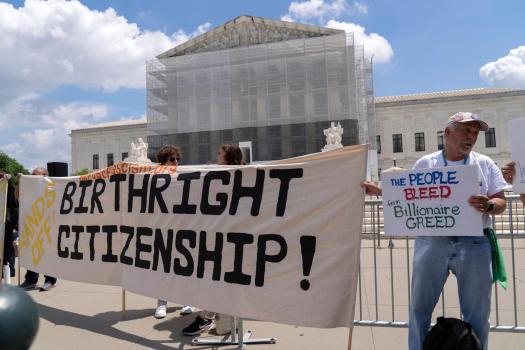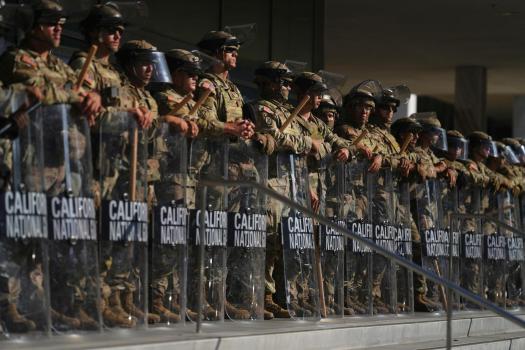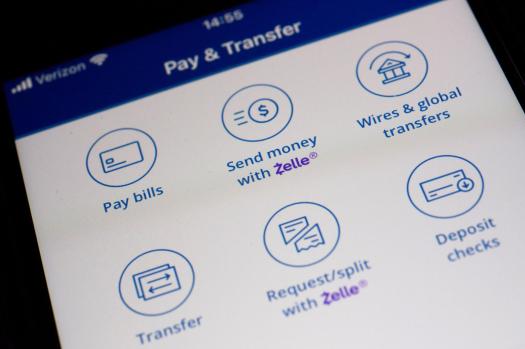Written by Michael Kunzelman
Washington (AP) Before restrictions on birthright citizenship might go into effect in late July, a federal judge on Monday asked when the Trump administration would try to implement its executive order on birthright citizenship and whether the government would try to deport U.S.-born children of people who are in the country temporarily or illegally.
Related Articles
-
Judges consider whether Trump can use wartime act against Venezuelan gang Tren de Aragua
-
Netanyahu to head to Washington next Monday as Trump presses for a ceasefire in Gaza
-
Watch live: Senate votes on amendments to Trump s big, beautiful bill
-
Bush, Obama and a tearful Bono fault Trump s gutting of USAID on agency s last day
-
What s in the latest version of Trump s big bill moving through the Senate
While the Supreme Court has halted its implementation for 30 days, Justice Department lawyer Brad Rosenberg informed U.S. District Judge Deborah Boardman that the administration has no plans to deport any minors protected by President Donald Trump’s executive order. He referred to it as a hypothetical query.
After the Supreme Court’s decision last Friday, the court ordered Rosenberg until Tuesday to provide a written summary of what the administration thinks it may and cannot do. She inquired as to whether the administration planned to try to deport infants before July 26. She asked about children born after February 19 who are covered by Trump’s executive order but are not plaintiffs in lawsuits against the ban, the judge said.
“No,” answered Rosenberg. I simply wish to clarify. The court’s description of what it thinks the US might do 30 days following the Supreme Court’s ruling is what I’m replying to. However, it should be noted once more that the duty of creating guidelines for the executive order’s execution has been assigned to all federal agencies. I therefore consider that to be hypothetical.
According to Boardman, “I believe the government when it says that the United States does not intend to do that and is not doing that.”
William Powell, the plaintiffs’ lawyer, stated that following the Supreme Court’s ruling, their clients are going through extreme stress, anxiety, and terror.
They’re not attorneys. Powell informed the judge, “They don’t know exactly what these things mean.” We are unable to reassure them that the order is completely banned because it isn’t.
Powell stated the plaintiffs’ lawyers are worried about more than just deportation as an example of irreparable harm.
He stated, “Of course, we’re also worried about other possible ways that the (executive) order could be implemented to deny newborns their potential rights.”
Boardman, a district court judge from Greenbelt, Maryland, is not alone in his struggle to modify his orders to conform to Justice Amy Coney Barrett’s ruling from the Supreme Court. Separate orders on birthright citizenship have been granted by judges in Massachusetts, Washington, and New Hampshire, albeit the latter’s order was more limited and did not apply statewide.
In a letter sent on Monday, New Jersey Attorney General Matt Platkin, who filed a petition in federal court in Massachusetts alongside other states and localities, stated that he was requesting a hearing on whether a countrywide order prohibiting the president is necessary. The national injunction in the New Jersey case, according to Platkin, does not conflict with the Supreme Court’s recent ruling. However, he said that the high court provided alternate kinds of remedy, leaving it up to lower courts to decide what those may be.
Although the majority of the high court decided that federal judges are not empowered to issue national injunctions, it was not made clear whether Trump’s executive order on birthright citizenship would soon be implemented in some regions of the nation.
Anyone born in the United States is automatically granted birthright citizenship, including children whose mothers are in the country illegally. Shortly after the Civil War, the 14th Amendment to the Constitution established the right. The United States is one of roughly thirty nations that use birthright citizenship.
Trump and his followers have maintained that the requirements for obtaining U.S. citizenship ought to be more stringent.
This report was written by Mark Sherman and Mike Catalini of the Associated Press.








